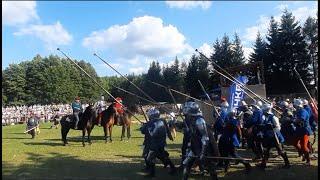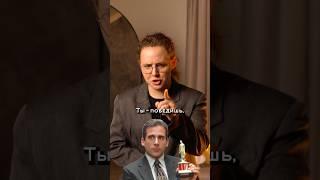
Wills and Trusts Explained
Build your estate plan online! MyAdvocate is the online solution for creating and maintaining your Will and all other legally-valid estate planning documents. Click the link below to get started!
https://www.myadvocate.com/join/paul
--
It's a challenge to explain wills and trusts in a short post, but here's my best shot.
People acquire stuff during their lifetime. Some of the things they acquire (like IRA's and life insurance) can be designated on a beneficiary designation form to go to certain individuals when they die.
Other assets (like investments, businesses, real estate, and many bank accounts) require a will to transfer those assets from your name to another when you die. If you have no will (die "intestate"), your state dictates who gets your assets.
To be a valid will, it must meet your state's formality requirements. Other matters you address in your will are naming your executor and designating guardians for any minor children you may have when you die.
It's uncommon to list your specific assets in your Will. It's more common to be general and provide, for example, that your estate is to be divided among your children, equally. Sometimes people make specific bequests of money or property.
Here's where the trust discussion. Sometimes, it is inappropriate to leave a bequest to an heir "outright." When you make an outright bequest of part of your estate to someone, then that amount is dumped into their lap. It may not make sense to dump an inheritance into the lap of someone who is a minor or someone who is an adult but incapable of managing the inheritance responsibly. So in your Will, you make a bequest that is subject to the terms of the testamentary trust that is described in your Will.
When you die with assets in your name that need to be transferred pursuant to your Will, there will be a probate (in , also called a "Succession"), because our system is such that the courts must oversee the management and distribution of assets when you die.
Instead of testamentary trusts, some people set up stand-alone (also known as "inter vivos" trusts) during their lifetime. People will transfer assets to their trusts during their lifetime for different reasons: probate avoidance, estate tax avoidance; avoid having to deplete your estate at the nursing home; or for other reasons.
Whenever a conversation is initiated about wills and trusts, we also address powers of attorney and living wills, which can ensure that your wishes are carried out during your lifetime by the right people when you lack the capacity to make your own decisions.
For prospective law firm clients who want to schedule a free 15 minute initial phone call with Paul Rabalais, go to: https://go.oncehub.com/Paul8
This post is for informational purposes only and does not provide legal advice. Please do not act or refrain from acting based on anything you read on this site. Using this site or communicating with Rabalais Estate Planning, LLC, through this site does not form an attorney/client relationship.
Paul Rabalais
Estate Planning Attorney
www.RabalaisEstatePlanning.com
Phone: (225) 329-2450
https://www.myadvocate.com/join/paul
--
It's a challenge to explain wills and trusts in a short post, but here's my best shot.
People acquire stuff during their lifetime. Some of the things they acquire (like IRA's and life insurance) can be designated on a beneficiary designation form to go to certain individuals when they die.
Other assets (like investments, businesses, real estate, and many bank accounts) require a will to transfer those assets from your name to another when you die. If you have no will (die "intestate"), your state dictates who gets your assets.
To be a valid will, it must meet your state's formality requirements. Other matters you address in your will are naming your executor and designating guardians for any minor children you may have when you die.
It's uncommon to list your specific assets in your Will. It's more common to be general and provide, for example, that your estate is to be divided among your children, equally. Sometimes people make specific bequests of money or property.
Here's where the trust discussion. Sometimes, it is inappropriate to leave a bequest to an heir "outright." When you make an outright bequest of part of your estate to someone, then that amount is dumped into their lap. It may not make sense to dump an inheritance into the lap of someone who is a minor or someone who is an adult but incapable of managing the inheritance responsibly. So in your Will, you make a bequest that is subject to the terms of the testamentary trust that is described in your Will.
When you die with assets in your name that need to be transferred pursuant to your Will, there will be a probate (in , also called a "Succession"), because our system is such that the courts must oversee the management and distribution of assets when you die.
Instead of testamentary trusts, some people set up stand-alone (also known as "inter vivos" trusts) during their lifetime. People will transfer assets to their trusts during their lifetime for different reasons: probate avoidance, estate tax avoidance; avoid having to deplete your estate at the nursing home; or for other reasons.
Whenever a conversation is initiated about wills and trusts, we also address powers of attorney and living wills, which can ensure that your wishes are carried out during your lifetime by the right people when you lack the capacity to make your own decisions.
For prospective law firm clients who want to schedule a free 15 minute initial phone call with Paul Rabalais, go to: https://go.oncehub.com/Paul8
This post is for informational purposes only and does not provide legal advice. Please do not act or refrain from acting based on anything you read on this site. Using this site or communicating with Rabalais Estate Planning, LLC, through this site does not form an attorney/client relationship.
Paul Rabalais
Estate Planning Attorney
www.RabalaisEstatePlanning.com
Phone: (225) 329-2450
Тэги:
#wills_and_trusts_explained #Wills_and_trusts_101 #Wills_and_trusts_basics #Louisiana_wills_and_trusts #Rabalais_estate_planning #Rabalais_wills_and_trusts #Basics_of_wills_and_trusts #Basics_about_wills_and_trusts #What_is_a_trust #How_does_a_trust_work #When_to_use_a_trust #Difference_between_will_and_trust #will_vs_trust #Wills_versus_trustsКомментарии:
Wills and Trusts Explained
America's Estate Planning Lawyers
ARTE MUSEUM Overview
d'strict
Getting Started: Building a Farm Budget for 2022
Farmers Business Network
Unexplained Universe Mysteries | Space Documentary
Space Matters
Grunwald Battle Reenactment
Mikalai Drazdou
Katie Noel - Home (N.C) [Music Video]
Katie Noel
Today let's take a look at the topographic measurement function in handheld RTK #rtkreceivers
Shenzhen Maskura Technology Co., Ltd.
24 HORAS comiendo ROSA🩷
Stephani Rodríguez









![Katie Noel - Home (N.C) [Music Video] Katie Noel - Home (N.C) [Music Video]](https://rtube.cc/img/upload/NGZIT0tDWGhvbmo.jpg)
















